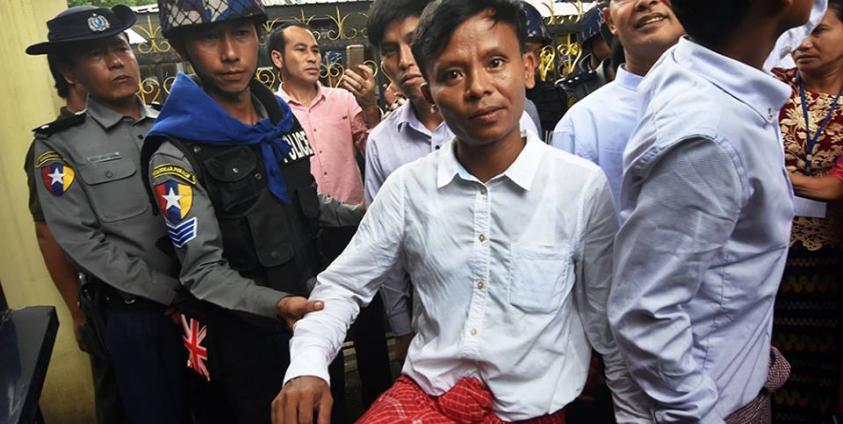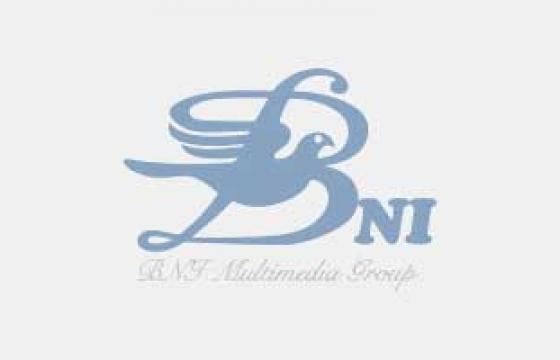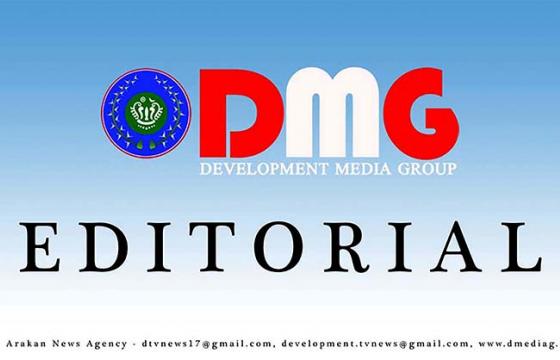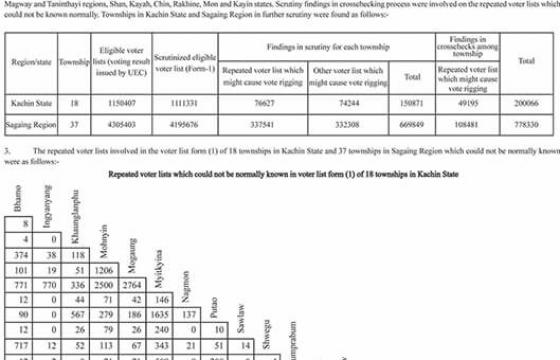Personal reflection and perspective
The fact that I can be considered a public intellectual now is a small wonder. As a Mon child born into a rural family during the Burman chauvinist socialist government, there was a lot conspiring to deny me an education. Yet at nine I was lucky enough to be admitted to the local monastic school where I learned Mon, Burmese, Pali and basic English. I had the privilege to continue learning these languages for many years after.
Writing now from Australia, I feel the difficulty of contributing to national debate with little access to information and few resources in Myanmar. Journalism is without value if does not offer new information or insights to the reader. But I am committed to the task of sharing my thoughts and experiences of the last 25 years of citizen journalism.
I left my rural Mon village in 1984 for the Burman-dominated Irrawaddy delta, where I was to continue my monastic education. I was fifteen when I left and had grown up in a Mon village, surrounded by Mon culture and language. In 1987 I headed to Yangon (then called Rangoon) to continue my monastic education. When in 1988 massive pro-democracy protests shook the country, I went back to my village where, still a monk, I taught Mon. It was only in 1992 that I was able to return to Yangon to get my certificate. I spent a total of ten years reading the leading scholars of the day, almost all of whom were Burman. And although the voices were ethnically narrow, I continue to appreciate what I learned from those thinkers.
After reading the history of Myanmar in Mon, Burmese and English texts for the past 25 years, I have reached the conclusion that freedom of thought and personal liberty always come with a price. In my Yangon years from 1987 to 1994 I continued to read the Burman intellectuals, always aware of the price that so many of them paid. Anyone who didn’t “toe the line” or “dance to the tune,” as the Burmese literature would say, faced intimidation and persecution. The Burman-dominated military government that came to power in a 1962 coup did not tolerate differences of opinion in any publication. The government controlled the press, and with it the national narrative, through a mix of shutting down publications, censoring those that remained and establishing its own propaganda imprints.
Independent presses only survived underground, where intellectuals risked their lives in the name of sharing a liberal political literature. And yet even with the advent of an aboveground independent media in 2010, prominent newspaper editors and journalists continue to be arrested for articles deemed insulting or challenging to those with power. While the laws may have changed, the effect is the same: a culture of intimidation and harassment that precludes honest national conversation. I have deep admiration for the journalists and writers who risk their freedom in the name of liberty and unfettered press, including my friend Ko Lawi Weng of the Irrawaddy, who sits in a Shan State jail cell for his pursuit of the truth.
The culture of censorship that exists in Myanmar is but a continuation of the decades-old instinct towards authoritarianism. In 1988 I was a monk, teaching Mon in the village where I was born. By 1992 I was aware that the local militia official, appointed by the government, had filed a report with the military saying that I was operating an unauthorised Mon language school, and I was not surprised to be summoned for questioning. I was verbally interrogated for three hours by the senior military officer for Mudon Township. I was eventually released, though only, I believe, because I was a monk, I spoke Burmese well and my father, a former village administrator, served as my guarantor. For the military government, something as innocuous as language classes were threatening because they challenged the Burman hegemony that they thought gave their regime legitimacy.
I left for Thailand in 1994, hoping to find liberty and freedom outside of my home country. What followed were years of hardship and isolation as I struggled in a new country. In 1995 I began working as a writer for the Mon News Group in Bangkok. It was empowering to work with the Mon CSOs that were active in Bangkok but I found that the exile community was dominated by Burman activists, who had little patience for Mon or Karen news groups. They wanted to organize all the exile groups under the banner of Burmese students or Burmese democratic alliance, leaving little room for ethnic voices. Even as they fought political tyranny at home, they were blind to the ethnic tyranny that they engendered. I engaged with this Burman-dominated struggle for a few years until 1997, when I migrated to Australia.
Throughout the history of Myanmar, a significant part of the official effort to control the national narrative and suppress dissent was the sidelining of minority ethnic scholars from public life. For half a century, non-Burman professors were denied appointments at public universities or removed from existing posts. While Burman intellectuals were oppressed for their views, non-Burmans were oppressed for their very existence—for who they were. Most non-Burman public intellectuals therefor struggled to live and work without ministerial appointments or positions in university departments. Still, many were able to make their voice heard.
I have never believed that one ethnic group could be assimilated to another by force. But, I have found that the political institutions of Myanmar seem to have been designed to do just that. Journalists and other public intellectuals therefor have a responsibility to continue their work in the new political structures developing in Myanmar, and to confront the institutional mechanisms of forced assimilation. The public discourse will be more dynamic for its diversity, with thousands of individuals contributing richness, rather than one artificial but official narrative.
It is time that the government of the Myanmar, under the leadership of Daw Aung San Suu Kyi acknowledges the role of public intellectuals and foster trust between the rulers and the people.
Freedom of expression is one among many basic rights that must be protected, but the public’s right to know often informs those other basic freedoms. The work—and safety—of public intellectuals is therefore a part of the national interest writ large. Importantly, while it is important that the government stop persecuting intellectuals, it is also important that Burmans of all stripes acknowledge and correct their impulse to sideline and exclude ethnic voices from the national discourse.
Public intellectuals are among the nation’s greatest assets. They should be able to live without fear, so they can continue to do their important work for the peace, progress and the safety of all people of Myanmar.
This article dedicated to my close friend, Irrawaddy journalist Ko Lawi Weng, who was detained in Shan State on Jun 28 of this year. He sits in a jail cell as I write this article.
-- By Mon News Agency (MNA)





